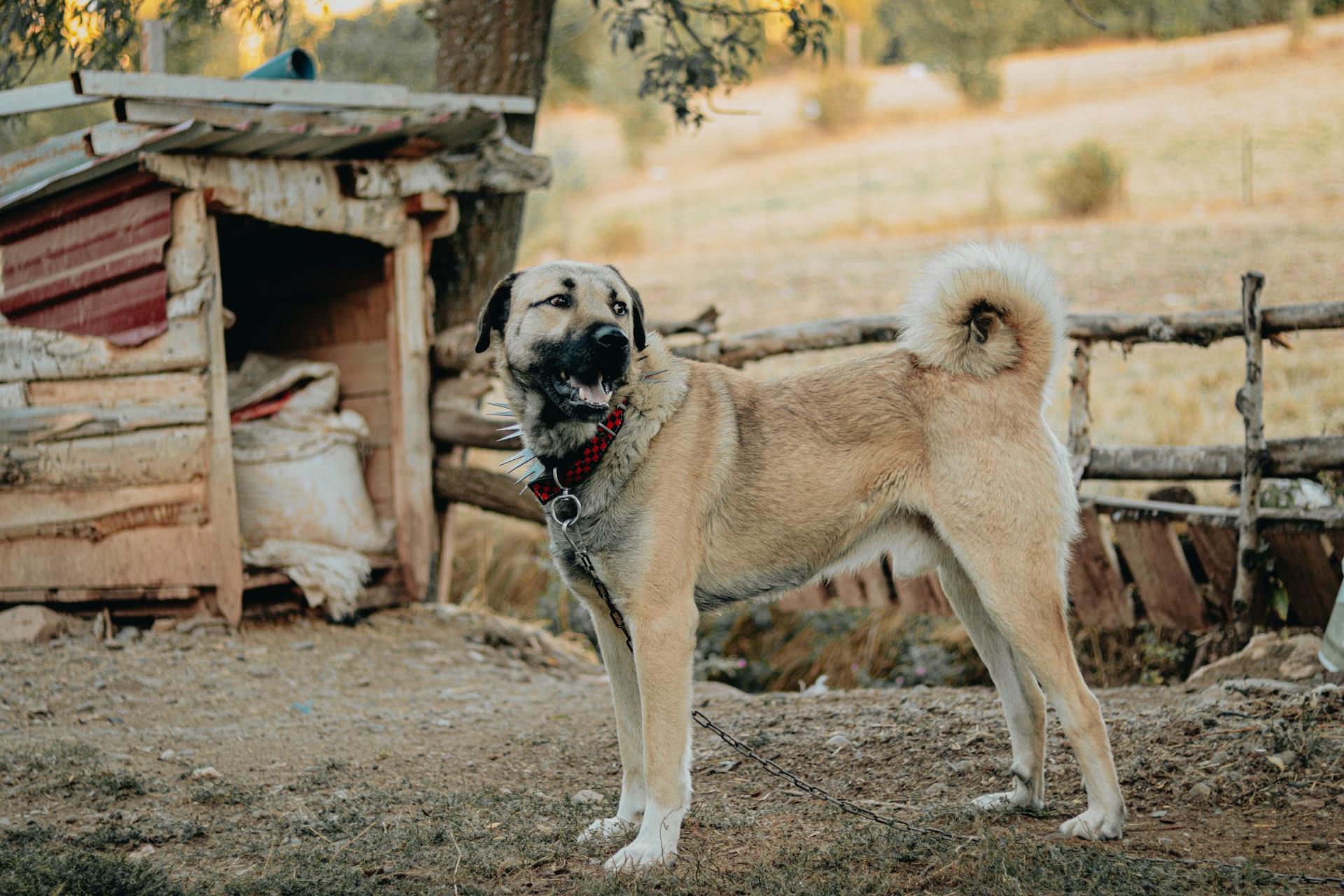
The Kangal Shepherd Dog is a remarkable breed with a rich history and a loyal temperament.
On average, a Kangal Shepherd Dog can live for around 12 to 15 years.
Their lifespan is influenced by factors such as diet, exercise, and health conditions.
With proper care and attention, many Kangal Shepherds have been known to live into their late teens.
Kangal Shepherd Dog Lifespan
Kangal Shepherd Dogs can live up to 15 years, with some individuals living even longer.
Their lifespan is influenced by factors such as genetics, quality of care, and environment.
In general, large dogs like the Kangal Shepherd Dog tend to have shorter lifespans, but they are an exception.
Regular veterinary check-ups can help prevent or alleviate health problems.
Here are some potential health concerns associated with Kangal Dogs:
- Benign fatty tumors
- Eye problems due to heavy skin folds
- Joint problems
It's essential to adjust your expectations regarding workload and competency as your Kangal Shepherd Dog ages.
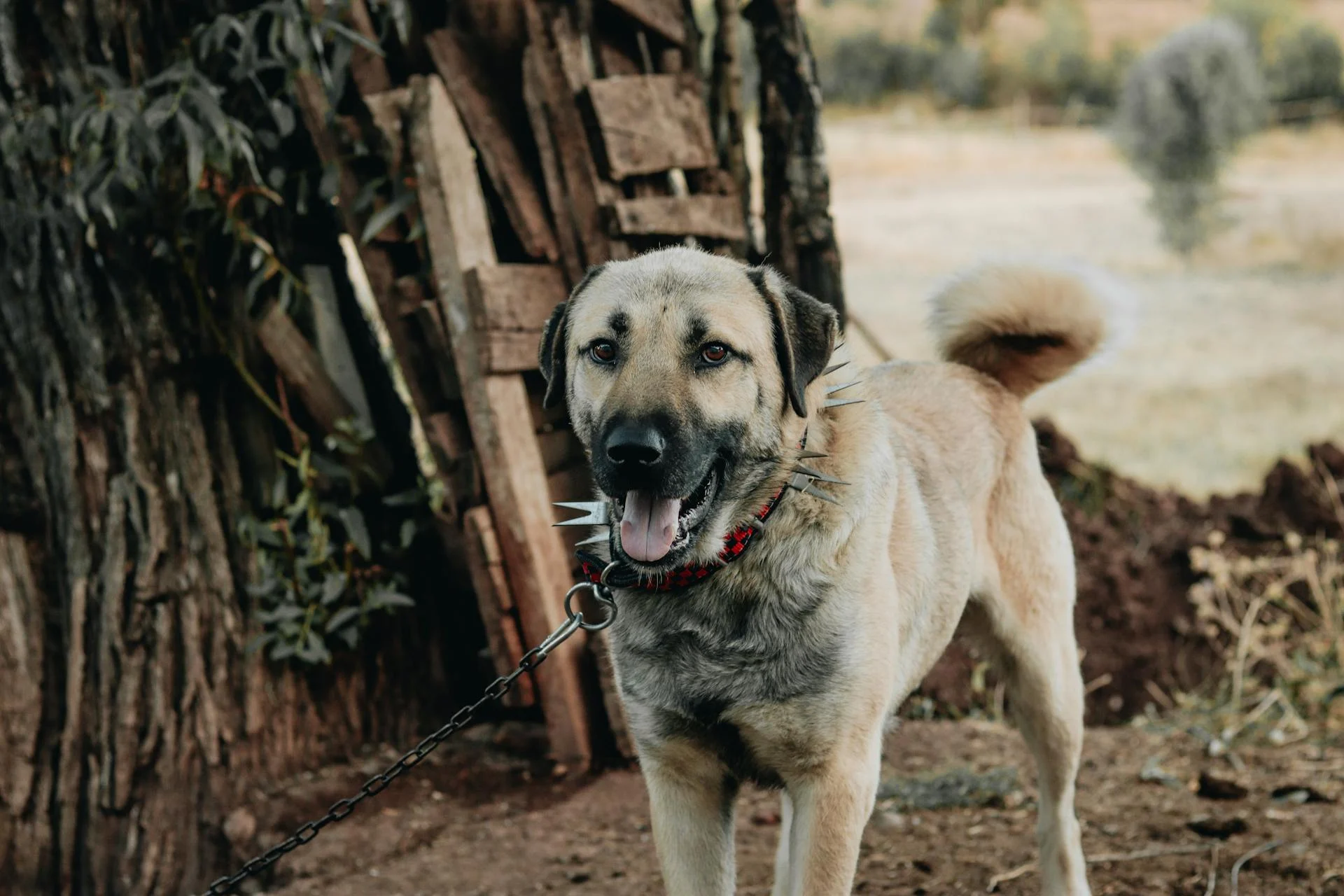
You can provide them with warmer shelters and put older or injured livestock near them to maintain their sense of purpose.
Feeding, supplements, and medications are also crucial factors to consider as your dog ages.
A soft or raw food diet may be necessary to make eating easier for elderly dogs with dental issues.
Glucosamine is a popular supplement for easing joint pain and discomfort in older dogs.
Love, attention, and a comfortable lifestyle can help prolong your Kangal Shepherd Dog's life or at least ensure a high quality of life until the end.
Lifespan and Performance
A Kangal shepherd dog's lifespan is a remarkable 12 to 15 years. This means they'll spend their golden years with you, and it's essential to care for them properly.
Their performance as guard dogs peaks between the ages of three and six, when they're mature enough and have the temperament to do so. During this time, they'll be able to guard their territory with high consistency and performance.
Consider reading: Kangal Guard Dog
However, their performance will slow down after about age seven, and they may need extra care. This doesn't necessarily mean they need to be retired, but it's a good idea to start training new pups to replace the aging dogs.
The number of dogs on a property also affects their performance. If there are multiple dogs guarding a property together, they'll be able to perform at a higher level for an extended time frame. But if they're working alone or in a pair, they may see a drop in performance at an earlier age.
Here's a rough estimate of a Kangal shepherd dog's life stages:
Remember, every dog is an individual, and their lifespan and performance will depend on their environment, quality of care, and overall health.
Prolonging Lifespan
Kangal dogs can live up to 15 years or more, with some living into their early teens.
To help your Kangal live a long and healthy life, it's essential to pay attention to their behavior and routines as they age.
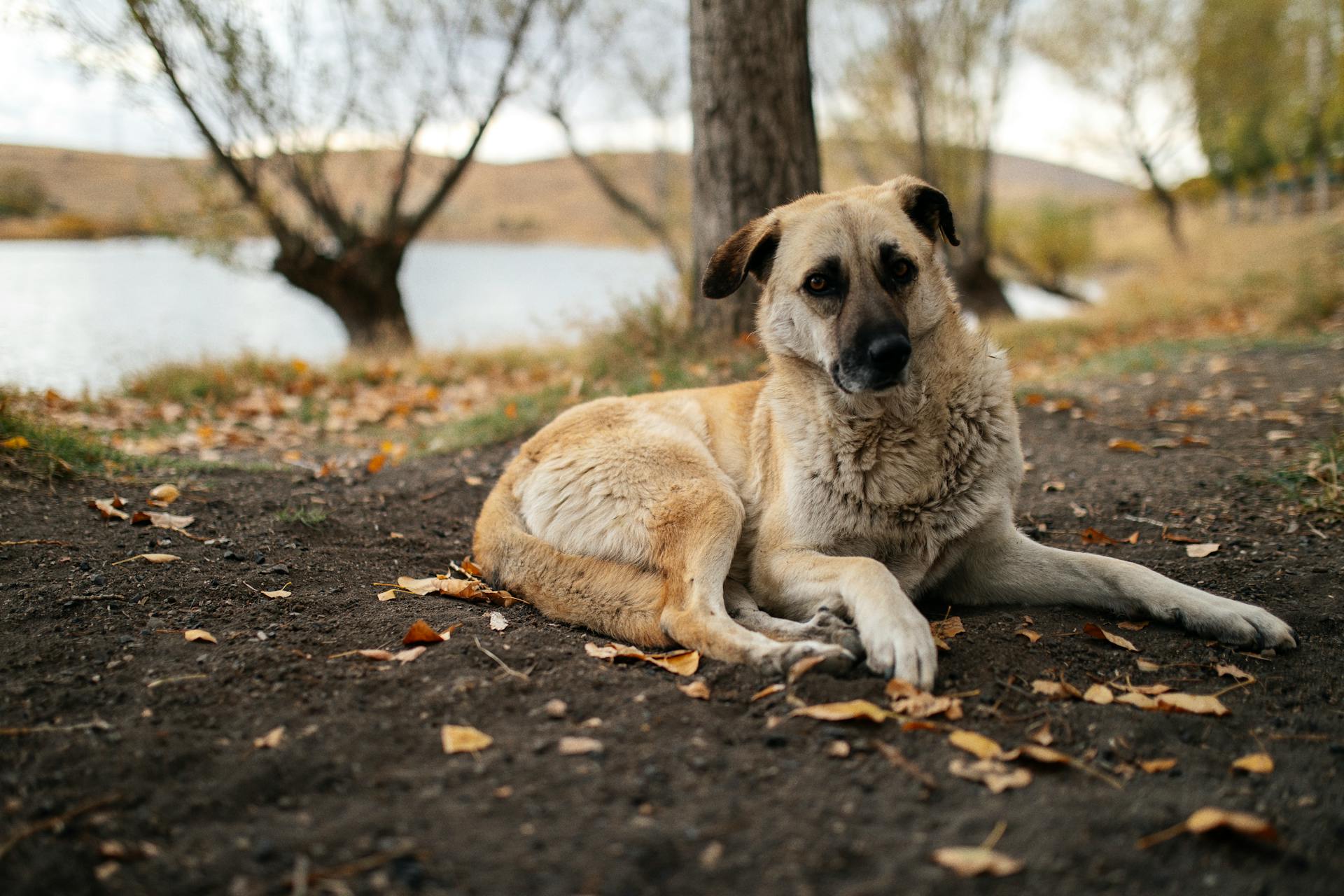
Regular veterinary check-ups can help prevent or alleviate health problems, especially since Kangals are prone to joint issues.
You'll want to adjust your expectations regarding workload and competency once your Kangal reaches an "elderly age."
Providing a comfortable and stress-free environment can help prolong their lives, and that includes making dietary adjustments as they age.
Switching to a soft or raw food diet may be necessary if your Kangal is experiencing difficulty eating due to tooth decay or loss.
Supplements like Glucosamine can help ease joint pain and discomfort, and your veterinarian can recommend specific products.
Love and attention play a significant role in your Kangal's quality of life, so be sure to spoil them rotten and enjoy their company.
Broaden your view: Puggle Age Expectancy
Dog Breed Overview
The Kangal Shepherd Dog is a large breed with a significant presence. They typically stand between 22 to 33 inches tall.
Their weight can range from 95 to 145 pounds, making them a substantial companion. They have a relatively long lifespan of 12 to 15 years.
In terms of grooming, these dogs require very little maintenance, as they have a low grooming need.
Nutrition and Feeding
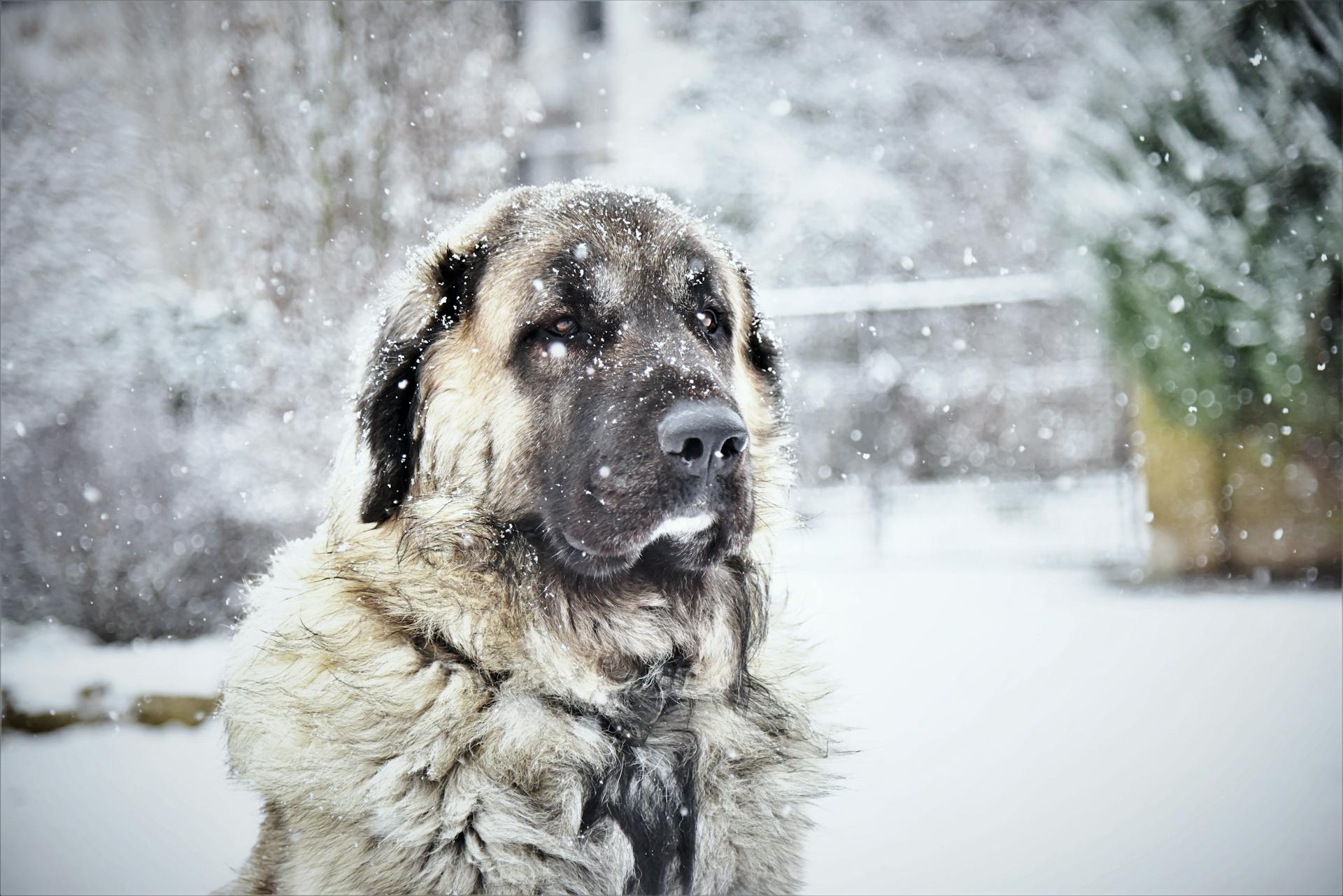
As you care for your Turkish Kangal, proper nutrition and feeding are crucial for their health and well-being. A balanced diet is essential for maintaining their energy levels and overall health.
Feeding your Turkish Kangal can be a bit tricky, especially as they age. You may need to switch to a soft or raw food diet if you notice they're having trouble eating their normal food.
Deteriorating teeth are a common issue in elderly dogs, and your Turkish Kangal is no exception. Hard food can be difficult for them to consume, so be prepared to make some adjustments as they age.
To ensure your Turkish Kangal is getting the nutrients they need, consider adding supplements to their diet. Glucosamine is a popular choice for easing joint pain and discomfort, and can be given as a daily supplement.
Here are some key things to keep in mind when it comes to feeding your Turkish Kangal:
- Soft or raw food diets may be necessary as your dog ages
- Glucosamine can help ease joint pain and discomfort
- Consult with your vet for specific recommendations on supplements and medications
Dog Breed Overview
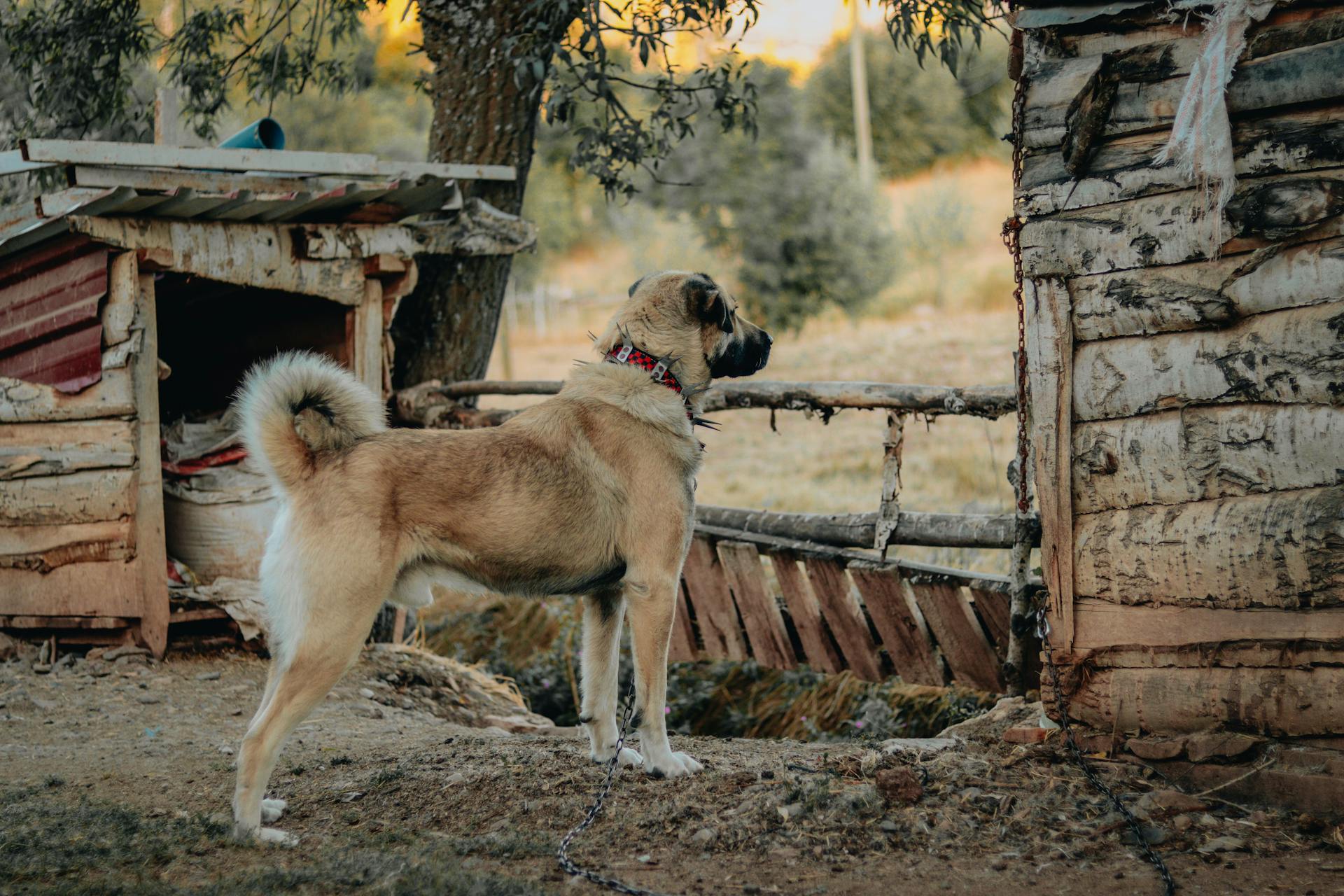
The Kangal dog is a loyal and loving companion, but it's essential to remember its massive size and guarding instincts. They can grow up to 33 inches tall and weigh between 95 to 145 pounds, making them a formidable presence.
These dogs are part of the Working breed group and have been used for centuries as livestock herders and guardians. They're naturally protective of their families and territories, but with proper socialization, they can be great with children.
Kangals are relatively low maintenance when it comes to grooming, requiring only occasional cleaning. However, they do need a great deal of exercise to stay happy and healthy.
Here's a quick rundown of the breed's key characteristics:
It's worth noting that while Kangals are naturally protective, they're not typically aggressive. With proper training and socialization, they can make wonderful family pets.
Health Concerns
The Turkish Kangal is a relatively healthy breed, but like all large dogs, they can be prone to certain health issues. They have a lifespan of 12 to 15 years, which is slightly longer than many large breeds.
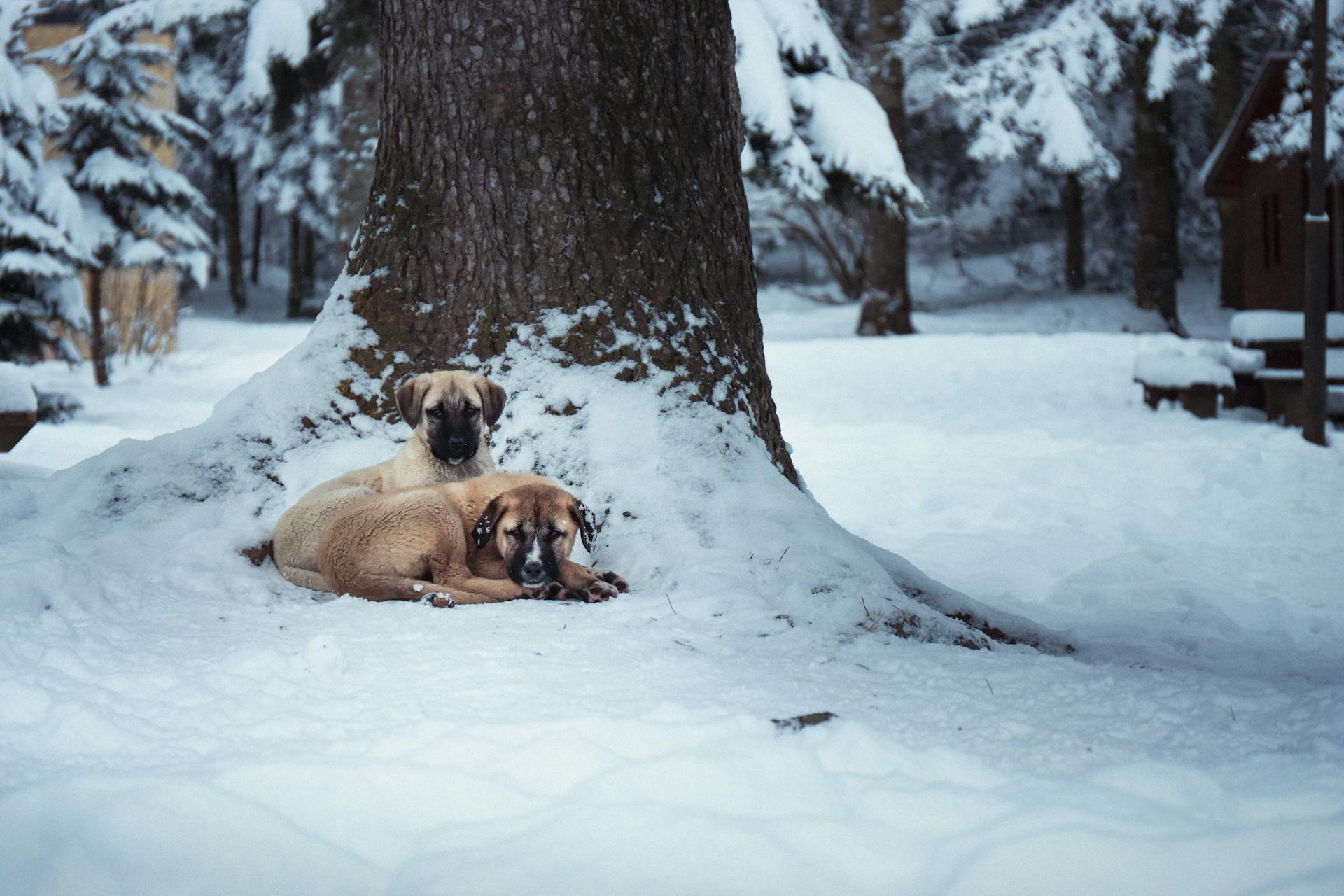
Regular health checks are crucial to detect any potential problems early on. This can help inform future care and treatment plans for your dog.
Some common health concerns associated with Kangal Dogs include hip dysplasia, lipoma, and entropion. These conditions can be painful and affect your dog's quality of life.
Here are some specific health concerns to watch out for:
- Hip Dysplasia
- Lipoma
- Entropion
- Benign tumours
Early detection and proper care can help alleviate these issues. Regular trips to the veterinarian can go a long way in preventing or managing these health problems.
Featured Images: pexels.com


